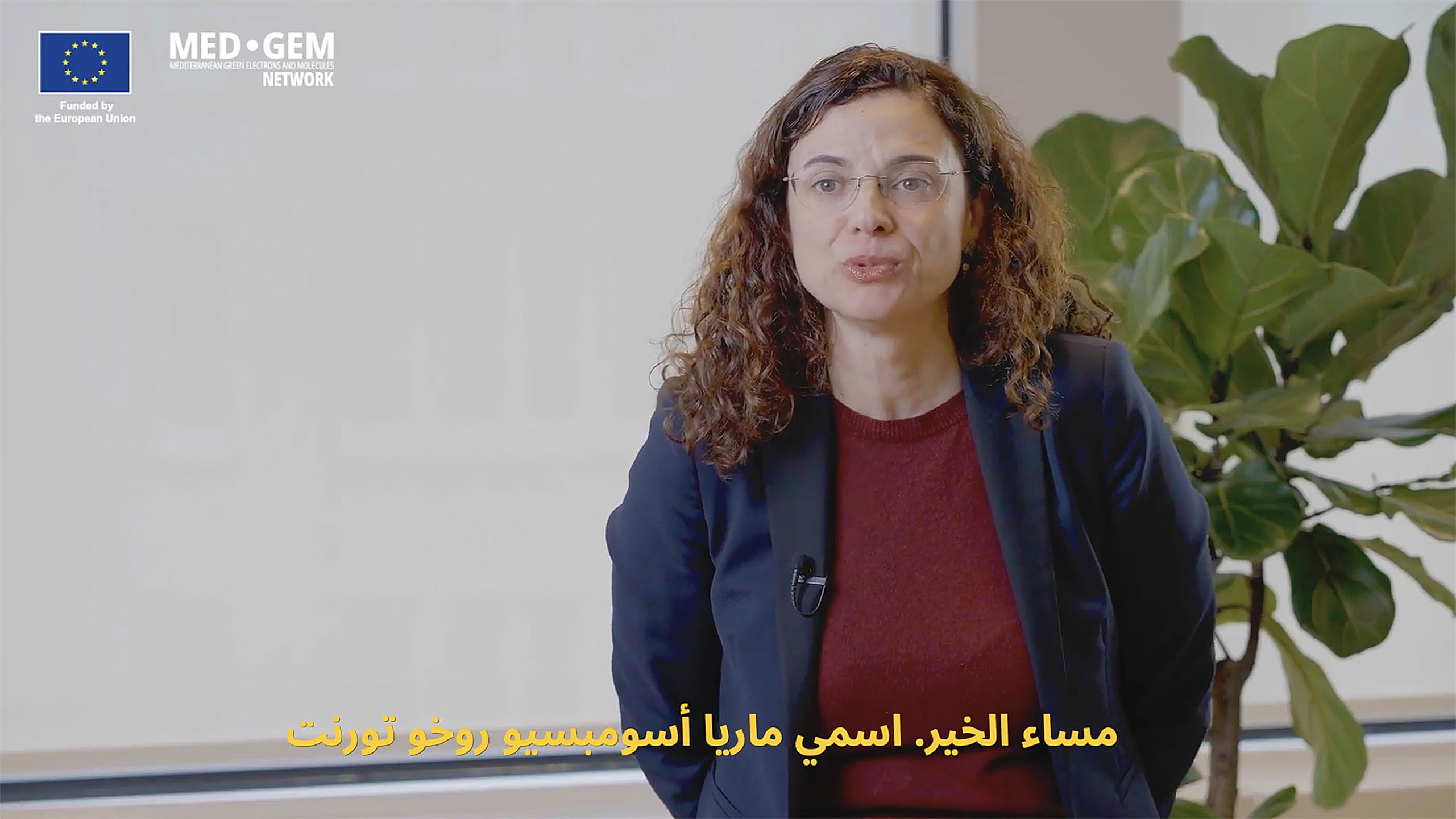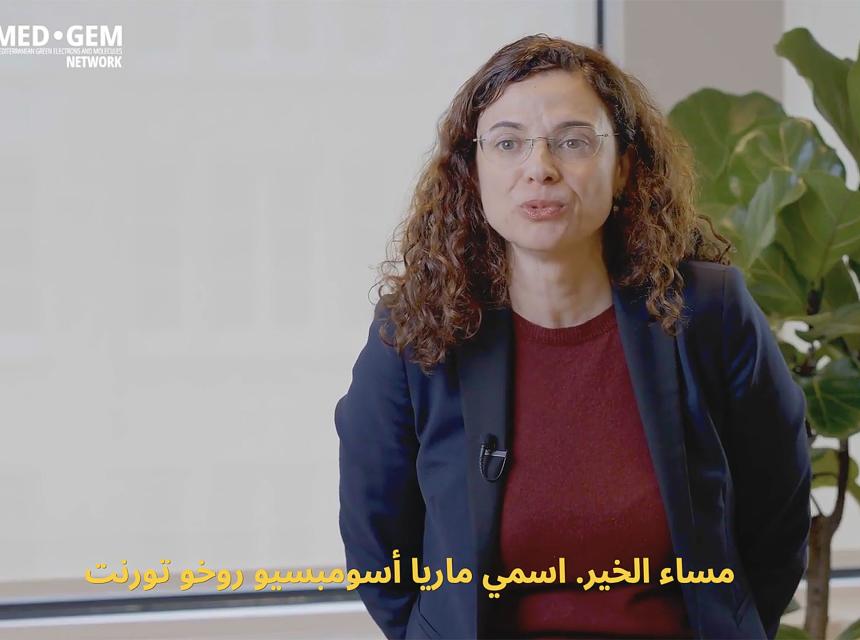Hydrogen Europe: Focus on Local Development First, Creating Regional Value Before Export - An interview with Maria Rojo on Green Hydrogen in the Mediterranean
As the global community races to meet ambitious decarbonisation targets, the European Union is focusing on green hydrogen as a critical component of its energy transition strategy. Central to this effort is the Mediterranean region, which, with its unique geographic and economic ties to Europe, is poised to become a key partner in the production and export of green hydrogen. Maria Assumpcio Rojo Torrent, Director of Trade and International Relations at Hydrogen Europe, highlights the importance of this partnership, emphasising local development, regulatory cooperation, and the role of initiatives like the MED-GEM Network, Eu funded project in advancing shared objectives. This interview has been conducted last June 11, 2024 during the second Industrial Advisory Board (IAB) meeting and the third Steering Committee of the MED-GEM Network hosted in Hydrogen Europe's Brussels headquarters.

The Mediterranean: A Priority Partner for Europe's Hydrogen Future
The Mediterranean region’s strategic importance to Europe cannot be overstated. "The Mediterranean area is a priority for Europe, not only because of its geographical proximity but also due to historical ties and abundant natural resources," states Rojo Torrent. The region’s solar and wind potential make it an ideal partner for green hydrogen production, which is essential for Europe to achieve its decarbonisation goals. Moreover, the Mediterranean's proximity allows for cost-effective transport of hydrogen, further solidifying its role as a key supplier to the European market.
Fostering Local Development Through Green Hydrogen
One of the core tenets of Hydrogen Europe's strategy is to ensure that green hydrogen production first benefits local communities before focusing on exports. "We believe that hydrogen should focus on local development first, creating value within the region," says Rojo Torrent. This approach includes the development of e-ammonia for fertilisers, decarbonizing local industries, and creating new, clean industries in sectors like steel and cement. By prioritising local value creation, the hydrogen initiative becomes more acceptable and beneficial to the region’s economies, fostering a sense of ownership and long-term sustainability.
MED-GEM Network Role in Accelerating Cooperation and Investment
Despite the clear potential, final investment decisions in hydrogen projects are lagging, largely due to the complex regulatory environment and the scale of infrastructure needed. Here, the MED-GEM Network plays a pivotal role. "MED-GEM can be instrumental in accelerating cooperation, settling needed regulatory frameworks, and de-risking investments," Rojo Torrent explains. By bringing together institutions and industry leaders, MED-GEM facilitates the establishment of infrastructure necessary to connect production centers with demand hubs, thereby catalysing the hydrogen market's development in the region.
The Role of the European Hydrogen Bank and Future Prospects
The European Hydrogen Bank, launched recently, is another critical piece of Europe’s hydrogen strategy. While its current focus is primarily on stimulating hydrogen production within Europe, there is potential for it to drive demand in the future, offering a positive signal to Mediterranean partner countries. "We hope the European Hydrogen Bank will eventually support demand, encouraging Southern Mediterranean countries to ramp up production and align their strategies with European needs," says Rojo Torrent. This forward-looking approach is vital for creating a cohesive and mutually beneficial hydrogen market across Europe and its neighbours.
A Collaborative Path Forward
As the hydrogen sector in Europe and the Mediterranean continues to evolve, the need for robust cooperation between governments, industries, and institutions becomes increasingly evident. The Network and the European Hydrogen Bank are just two examples of how strategic partnerships can pave the way for a sustainable energy future. As Rojo Torrent aptly puts it, "We are now at a stage where we need to concretise this cooperation, ensuring that the projects under development today lead to real, impactful change in the coming months." The success of these initiatives will be crucial not only for Europe’s energy transition but also for fostering economic development and energy security in the Mediterranean region.

